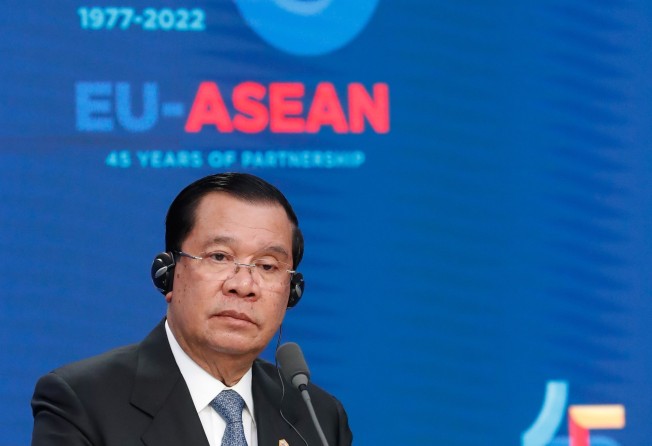
At summit, EU announces €10 billion package but frustrated Asean leaders seek trade pact
- At first leaders summit, the two blocs pledge economic cooperation but show strains on political statements, especially on Russia’s invasion of Ukraine
- ‘We absolutely refuse to … pick sides in terms of which superpower we are aligned with,’ Philippines President Ferdinand Marcos Jnr says
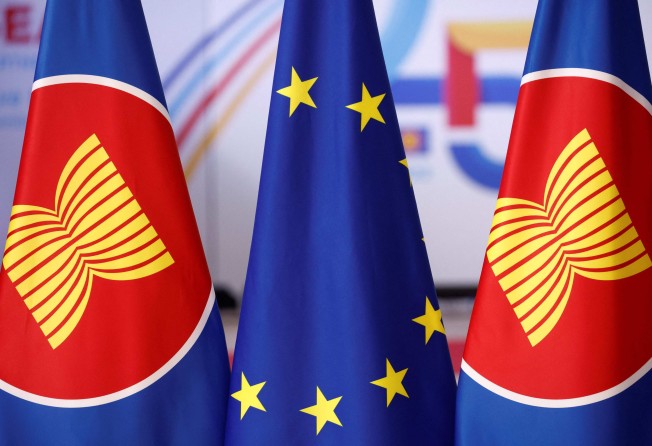
Asean members want a free-trade deal with Europe rather than handouts, and do not want to be a pawn in great-power rivalries, its leaders said in Brussels on Wednesday.
After the first-ever leaders summit between the Association of Southeast Asian Nations and the European Union concluded, the Asian side left complaining that talks concerning a bloc-to-bloc trade deal were no closer to being relaunched.

There is reluctance in Brussels about discussing such a pact with a group that includes a military junta in Myanmar. Instead, EU leaders said, it prefers to pursue “block by block” deals with individual Asean member states.
The EU did announce a €10 billion (US$10.7 billion) infrastructure package of grants and loans for Asean states, but Hun Sen, the Cambodian prime minister and outgoing Asean chair, warned Brussels that the group was not interested in “always receiving help” from Europe and preferred a trade deal.
“Asean is not always waiting for help from the EU, but [we] need to see the complementarity of the economies of the two regions,” he said. Concerning Myanmar, he said “politics should not hinder” EU-Asean progress.
“It’s true that European countries are more advanced, but Asean is not just a place to receive assistance … Asean and Europe [should] agree to have a free-trade agreement.”
Philippines President Ferdinand Marcos Jnr warned that the region – often described as a “swing state” in the US-China rivalry – was not happy being caught in the geopolitical crossfire.
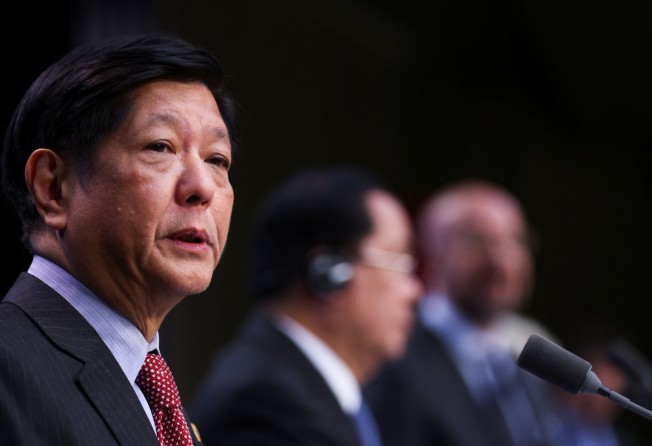
“We absolutely refuse to go back to the situation of the Cold War, where we have to pick sides in terms of which superpower we are aligned with,” he said.
Marcos added that Asean members “are committed to the idea that the future of the Asia-Pacific region should be decided by Asian Pacific countries and not any other power outside of our area”.
While the EU and Asean agreed to deepen economic and transport ties at the summit, both parties came away feeling short-changed.
For the EU, efforts to bring Asean on board with prickly geopolitical issues proved ultimately unsuccessful.
The two sides stopped short at unbridgeable gaps on topics including Taiwan and Russia’s invasion of Ukraine. Negotiators haggled for weeks over a joint communique, only to settle on language that some EU leaders said they found disappointing.
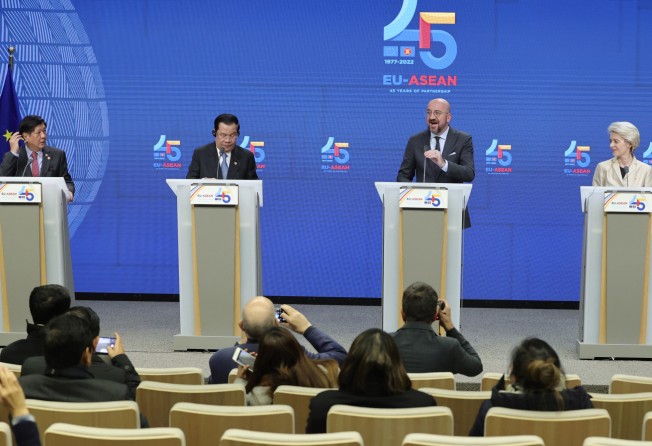
The communique states that “most members strongly condemned the war in Ukraine and stressed it is causing immense human suffering and exacerbating existing fragilities in the global economy”.
“There were other views and different assessments of the situation and sanctions.”
However, Brussels did convince Asean to include language on “the need to respect the sovereignty, political independence and territorial integrity of Ukraine” – wording absent from last month’s G20 summit in Bali, whose statement was used as a template for Wednesday’s communique.
Language on Taiwan was dropped altogether, following a disagreement on how to phrase wording about “one-China policies”.
“I think there were always going to be challenges in that regard,” Irish Taoiseach Micheal Martin said when asked about the statement.
“But in my view, it is disappointing. We have to be very clear that the Russian invasion of Ukraine fundamentally contravenes the international rules-based order.”
Cambodia was among the Asean states to vote with the West in UN resolutions condemning the war, and has agreed to send personnel to help train Ukrainians in clearing landmines.
However, Hun Sen confirmed there were divisions in the bloc: Laos, Thailand and Vietnam have abstained on UN votes condemning Russia.
“In Asean, not all countries have the same opinion,” he said.
“For Cambodia, we voted to support the UN resolution condemning the annexation of land, and as Asean chair we also coordinated this statement on the dialogue of ceasefire between Russia and Ukraine. We do not agree with the aggression, the use of force, or the annexation of land.”
Finnish Prime Minister Sanna Marin said that EU-Asean economic cooperation could not occur in a geopolitical vacuum.
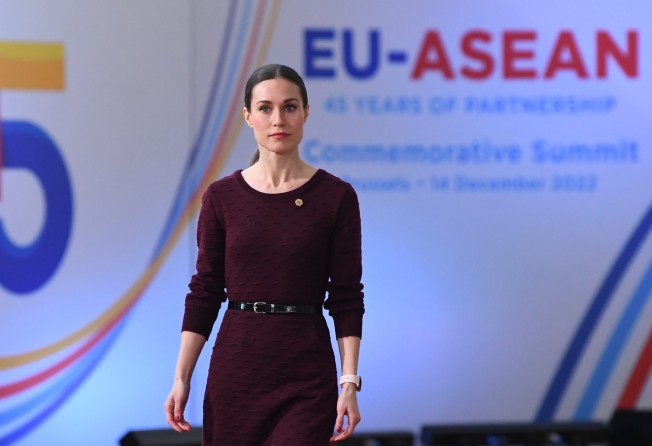
“We have many things in common and we have many things in our common interests … but of course we want also to see the Asean countries take a firm stance on condemning Russia’s actions in Ukraine,” she said before the summit.
Other leaders were less solicitous. Estonian Prime Minister Kaja Kallas said that their physical distance from Ukraine meant that Asean countries were naturally less interested in condemning Russia.
Even so, Kallas said, “this affects us all”.
“In terms of food security, or in terms of high inflation … that’s why we all have to fight this together. It’s not the sanctions that the EU has imposed, but the war that Russia is waging,” she added.
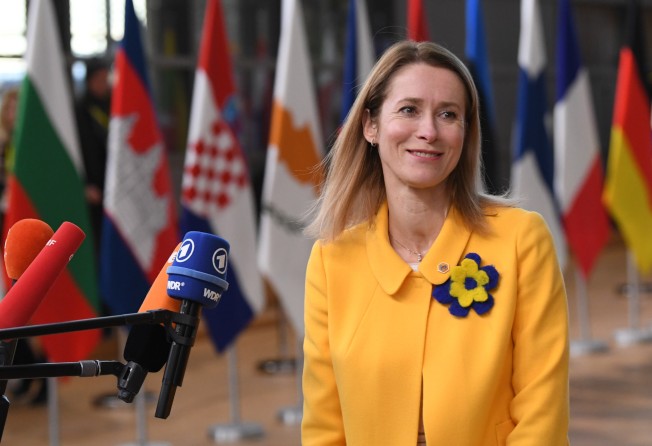
The joint statement pledged to “intensify our engagement on trade and economic issues”, but ministers from Malaysia and Thailand were disappointed that talks over free-trade pacts were punted down the road because “the time wasn’t right”, an EU official said.
Brussels has already finalised trade deals with Vietnam and Singapore, but talks with other members and the bloc as a whole have stalled.
Pham Minh Chinh, the Vietnamese prime minister, complained that only 12 EU member states had ratified an investment protection agreement that his country reached with the EU in 2019.
The €10 billion in infrastructure funding by 2027 was pledged through the EU’s Global Gateway programme – set up a year ago as a rival to China’s Belt and Road Initiative.
Details of specific projects were not released, though, nor was a breakdown of where the money would come from. A senior EU official said that the money was “new”, but confirmed that projects may also include existing initiatives that predate the Global Gateway programme.
Even so, the figure marks less than 1 per cent of what the Asian Development Bank estimates is required for Southeast Asia to grow at current rates.
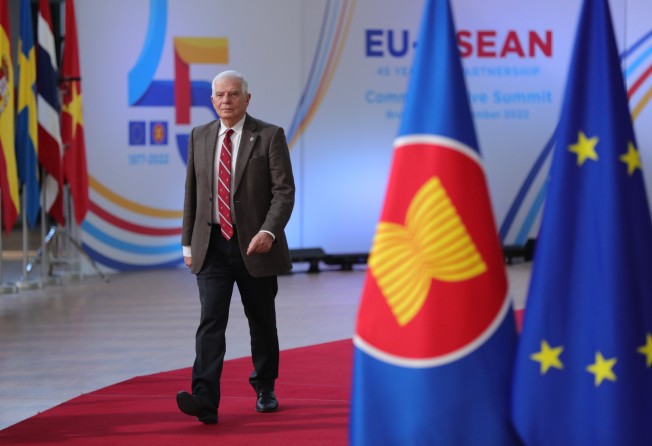
“Yes, there is €10 billion. Certainly, it is not enough – much more is needed. But it is important that we show what we do, presenting a united front,” said Josep Borrell, the EU’s top diplomat, in response to questions from the South China Morning Post.
Mark Rutte, the Dutch prime minister, called it “a start”.
“It’s step by step, it’s not only what we will discuss today here, we have to do more. But I think what we are doing today is OK,” Rutte said.